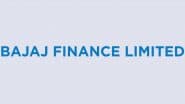Mumbai, February 17: Scammers never miss an opportunity to defraud people, and a recent incident in Chandigarh serves as a stark reminder. In December 2024, a resident fell victim to an online scam and lost nearly Rs 9 lakh while trying to apply for a new credit card. The fraudsters, posing as bank officials, contacted the victim under the guise of assisting with the credit card application process. Let us know what is a credit card scam and how you can prevent yourself from getting scammed.
During a video call on WhatsApp, the fraudster requested Rajesh’s identity details under the guise of a standard banking procedure. Trusting the call’s legitimacy, Rajesh shared his information and even showed his wife’s credit cards. Afterwards, the scammer sent a link to complete the application, but clicking it led to unauthorized transactions. A total of Rs 8,69,400 was stolen from Rajesh’s American Express card and Rs 60,000 from his Axis Bank card. Though he blocked the cards, the damage was done. The fraudster contacted him again the next day and hacked his Amazon account, though no further financial damage occurred. Rajesh reported the incident to the Chandigarh Cyber Cell, which is investigating. Online Scam in Bengaluru: Man Poses As ‘Expert Astrologer’ on Instagram, Dupes Woman of INR 5.9 Lakh After Promising Love Marriage.
What Is a Credit Card Scam?
(The above story first appeared on LatestLY on Feb 17, 2025 04:32 PM IST. For more news and updates on politics, world, sports, entertainment and lifestyle, log on to our website latestly.com).













 Quickly
Quickly




















